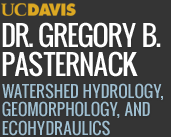Classroom Behavior
SAS004 is a large class, which means it is helpful to establish some etiquette for all of us to show respect to each other, both in the classroom and outside of it.
Classroom Etiquette
The general concept for good classroom etiquette is to avoid doing things that distract other students or the professor. My rule in SAS004 is that students are responsible for getting value out of their own educations as they see fit, but they must not ruin the experience of other students who are engaged in the class to get value out of their educations. I am not a parent or police officer for the class; I am a teacher and guide. My job is to take you on a educational journey, providing you with numerous opportunities to gain knowledge and experience, but you have to make those connections using your own initiative. Without going into a complete list, I can give a few examples of problematic behavior. Spreading out and rustling a newspaper or bunch of papers can be a major annoyance to people sitting around you. Similarly, typing loudly on a laptop keyboard, especially if playing a video game or having an argument using social media. If you are typing on a device, be sure to mute sounds. It is ok to use a laptop for taking notes during film screeneings and discussions, so just be mindful of the people around you. During a movie screening, if you have an electronic device in class, keep it on as low brightness as possible and don't have a video or game playing that distracts people around you. Have all notification systems off or silent.
Discussion and Being Open-Minded
Students come from diverse backgrounds. A key opportunity in higher education is to exchange ideas openly without fear of persecution. Therefore, even if you disagree with a person or think they are objectively wrong, still treat them with respect. It is ok to be passionate in an argument, as long as the passion is directed at the ideas and not the person. Students should not try to shut down people expressing different views, but should think creatively to express compelling, genuine reasons in support of their viewpoint.
Film Screenings
In this class we watch movies from popular culture. By design, fictional films involve conflict among people, and this can be stressfull and anxiety-producing. It is not feasibe to provide a "trigger warning" for all situations that may arise in the films that a perosn may be triggered by. As examples, characters may say hurtful things to each other and may engage in physical violence, sexual harassment, and/or sexual violence. There may also be animal or environmental abuse as part of the design of a story arc or for character-building purposes. There may also be -isms of various sorts expressed and/or acted upon. Further, movies from different eras- no matter how many awards they won in their day- often include behaviors and dialogue that people find offensive or inappropriate today.
In this class, we seek to identify such artifices in films to evaluate their purpose and impact in terms of water and popular culture. Therefore, the course does not seek to find purely passive, calm movies devoid of any conflict and inappropriateness, but instead take society's content as it exists and help students learn to critically think about such content that seems pervasive in our society today.
Therefore, when we are screening films in class, it is ok to make comments and engage in lively online chat, such as using Discord or other quiet chat tools, but please refrain from outspoken commentary and keep in mind your behavior and the UCD principles of community while on chat.
Movie Logs
For the movie logs, it is not permitted to collaborate with another person, copy another person's answers, or pay/have someone else do your work. If you get stuck, please ask a TA and not another student, because we want to make sure you get the opportunity to learn. We are highly vigilant for cheating using several approaches and I can guarantee you that it is not worth the risk of being caught. I catch cheaters every year.
Expository Essay
Write your own science essay individually without collaboration, without copying, and without input from other people. If you get stuck, please ask a TA or professor, not another person. We want to make sure you get the opportunity to learn.
Study Guide Report
This is a collaborative activity between two students. Because you have the opportunity to work with another person, the expectation is that the quantity and quality of work will reflect the time and effort of two people. This assignment is as much a test of your ability to work in a small team as it is a test of the content of the work produced. Working as a team requires even more attention to time management skills, organization skills, and vision for the work product than working on your own. it is imperative that the partners treat each other with respect. Since this assignment comes at the end of the quarter, everyone is busy, which means you have to work even harder to get the work done within your already complex schedules. Avoid confrontations over email or text, and if the partnership looks like it is struggling, then contact a TA or professor right away to get support. A failed partnership will end up with a poor grade.


